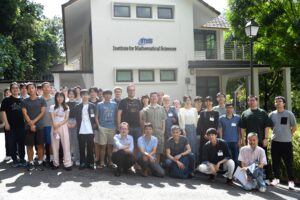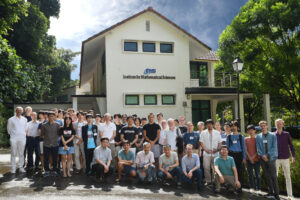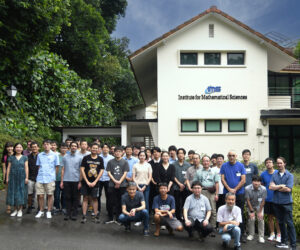Organizing Committee
Co-chairs
- Akira Sakai (Hokkaido University)
- Rongfeng Sun (National University of Singapore)
Contact Information
General and Scientific Enquiries: Ims-enquiry(AT)nus.edu.sg
Overview
Modern probability research often studies systems of many randomly interacting components, which model phenomena originating from physics, biology, etc. When the space-time scale becomes large and the number of interacting components tends to infinity, we often observe universal behaviour that are independent of the microscopic details. Proving such universal behaviour and identifying the macroscopic scaling limit has been a central theme in modern probability research. Some prominent examples in recent years include the study of two-dimensional models with conformally invariant scaling limits, two dimensional random planar maps and their scaling limits known as Liouville Quantum Gravity, the KPZ universality class of random surface growth models, and the weak universality of singular stochastic partial differential equations such as the KPZ equation.
The aim of this program is to bring together researchers working on the general theme of identifying scaling limits and establishing universality, especially researchers scattered across the East Asia region. We hope the program can help facilitate the exchange of ideas, nurture young researchers, and forge new networks of collaboration.
The program will consist of a mixture of mini-courses and research seminars, spread over 3 weeks.
Activities
| Date | Abstract | |
|---|---|---|
| Mini-Courses by Tom Hutchcroft, Caltech, USA and Xin Sun, University of Pennsylvania, USA & Short Talks | 4 to 8 Dec 2023 | View |
| Week 2: Workshop in Honour of Takashi Hara | 11 to 15 Dec 2023 | View |
| Week 3: Workshop on Random Interacting Systems | 18 to 22 Dec 2023 | View |
The aim of this program is to bring together researchers working on the general theme of identifying scaling limits and establishing universality, especially researchers scattered across the East Asia region.
Venue
IMS Auditorium



